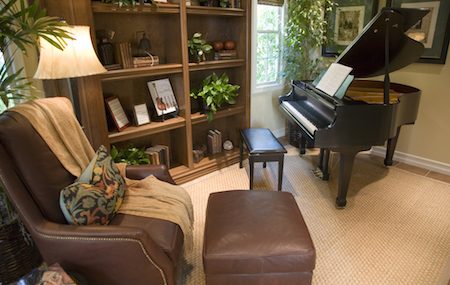This is a question we get a lot around here. And it makes sense, you spend a lot on purchasing the right piano for your home, protecting it seems only natural.
In most cases, it isn’t necessary to cover your piano. If you have a grand piano, covering it can be quite a chore. Especially if you play your piano regularly, covering and uncovering it each time can take away minutes that would be better off playing.
If you do have a grand piano and are worried about keeping the inner workings in the best possible shape, it’s better to close the lid when you are done playing. This can help with the integrity of your piano, and protect wood and strings from dust and humidity. Air conditioning can be especially hard on it. You can’t completely stop your piano from being impacted by the elements, but closing the lid reduces exposure, and can slow the aging and degradation process.
Your piano is designed to be inside your home and be played. With proper cleanings and tunings, it can last for decades. You can’t stop exposure to the elements, even if it’s covered or you close your lid. Aging and wear happen naturally.
But there is one thing you should do before you place your piano in its final resting spot, and that’s paying attention to the way sunlight streams into your home. Sunlight is possibly your piano’s worst enemy.
Sunlight can wear down the finish, warp wood, and tighten the tension throughout your piano. It can cause the soundboard to crack. It can degrade the finish, taking away your piano’s classic good looks. While you should consider moving your piano to a better location, covering it to protect it from the sun’s rays would be the next best step.
Do you have other questions about your piano’s condition?


